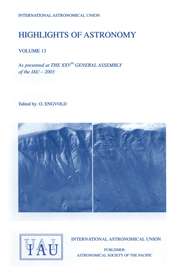No CrossRef data available.
Article contents
Through a Glass Darkly: The Status of Archiving Astronomical Spectra
Published online by Cambridge University Press: 30 March 2016
Extract
Astronomical research comprises a curious mixture of team work and individualism. From the hardware point of view data are ends in themselves, while from a strictly scientific aspect their acquisition is but the first stage in the complicated process of building astrophysical models. This dichotomy is reflected in a polarization of attitudes regarding the handling of observational data, and the activity of creating archives of astronomical data for use by posterity has consequently tended to fall in no-man’s-land. To the technology team, a telescope that can successfully deliver a data-bank full of raw observations has achieved its specification, while to the scientist who is under pressure to publish papers on fresh science, the concept of voluntarily creating public archives out of data originating from personal ideas may seem more than a little alien. Nevertheless, the formation of useable and efficient archives of astronomical observations is an activity that has taken on new meaning with the advent and monopoly of digital detectors; it is a procedure that builds bridges as well as access routes and it opens new global perspectives for astronomical data, but it still relies too heavily on individual initiatives.
- Type
- II. Joint Discussions
- Information
- Copyright
- Copyright © Kluwer 1995


